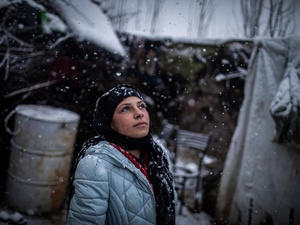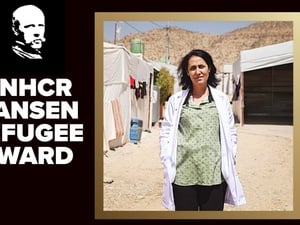Iraq
Iraq
Iraq is currently experiencing relative stability, however, the country still faces protracted humanitarian and development needs, a complex political environment, and a volatile security situation. UNHCR prioritizes sustainable development, protection, and community empowerment.

Iraq still faces protracted humanitarian and development needs, a complex political environment, and a volatile security situation.
The country hosts over 330,000 refugees and asylum-seekers, more than 90% of whom are Syrians. Almost 91% of all the refugees in Iraq live in the Kurdistan Region, while the rest reside in central and southern governorates in Federal Iraq. Of the over refugees living in the Kurdistan region, 34% reside in nine refugee camps while 66% live in urban settings, primarily in Erbil, followed by Dohuk and Sulaymaniyah. The rest of the refugee population live in Federal Iraq in urban settings, mainly in Baghdad (55%).
Iraq has an internally displaced population of 1 million, some of whom face significant obstacles preventing their return to their homes or successful integration into local communities. In terms of barriers to return, IDPs report insecurity, a lack of livelihood opportunities and financial resources, as well as damaged housing in their areas of origin and a perceived affiliation with extremist groups. In addition, 5 million IDPs have already returned and enjoy their rights on par with the rest of the Iraqi population, but also face similar challenges.
Given that the remaining protection concerns affecting displaced populations in Iraq predominantly stem from socio-economic factors, human rights deficits and the absence of the rule of law, UNHCR's activities have been transitioning from an emergency response to a more sustainable development approach. In tandem, UNHCR is seeking lasting solutions for IDPs, including facilitating their access to civil documentation and promoting their inclusion in Iraq's social protection systems.
Population and financial overview
Iraq
Use the year selector to access strategy information from previous years.
Latest updates
Office contact details
For information about our operation in Iraq, please contact us through our Headquarters in Geneva, Switzerland.













